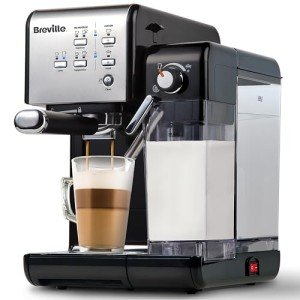9 Signs You're A High-Quality Espresso Machines Expert

The World of High-Quality Espresso Machines: A Comprehensive Guide
Espresso has actually become a precious beverage among coffee enthusiasts worldwide, known for its abundant taste, intense scent, and flexibility. The heart of a fantastic espresso depends on the machine utilized to brew it. High-quality espresso machines are developed to provide the best shot, making them a vital financial investment for coffee enthusiasts. This article checks out numerous kinds of high-quality espresso machines, their functions, maintenance tips, and responses to regularly asked questions.
Kinds Of High-Quality Espresso Machines
High-quality espresso machines fall into several categories, dealing with different choices, ability levels, and budget plans. The main types consist of:
| Type of Machine | Description | Ideal User |
|---|---|---|
| Manual Espresso Machines | Needs user ability to manage extraction and pressure. Provides the most control over the developing process. | Experienced baristas and enthusiasts |
| Semi-Automatic Machines | Combines manual operation with automation. Users control the grind and tamping, while the machine handles water dispersion. | Intermediate users |
| Automatic Espresso Machines | Automate the brewing process, enabling programmable developing times and temperature levels. | Casual coffee drinkers |
| Super-Automatic Machines | Have integrated grinders and are totally automated, dealing with everything from grinding to brewing and steaming. | Users looking for convenience |
| Commercial Espresso Machines | Designed for high volume use in cafes and dining establishments, providing resilience and speed. | Company owner |
Detailed Overview of Each Type
- Pros: Complete control over the brewing process; can produce remarkable quality espresso.
- Cons: Requires considerable skill; lengthy.
Semi-Automatic Machines
- Pros: Balanced control, blending manual and automatic procedures; remarkable quality espresso is still attainable.
- Cons: Requires some understanding and experience to master.
Automatic Espresso Machines
- Pros: User-friendly; reduces the learning curve while still producing high-quality espresso.
- Cons: Still needs some understanding of coffee-making essentials.
Super-Automatic Machines
- Pros: Maximal benefit; little ability needed; ideal for people or families who want coffee without hassle.
- Cons: Higher cost point; may do not have the fine-tuning capabilities of manual machines.
Commercial Espresso Machines
- Pros: Built for durability and efficiency; often consists of functions for high-volume turns.
- Cons: Expensive; may be overkill for home use.
Key Features to Consider
When searching for a high-quality espresso machine, a number of crucial features ought to be taken into consideration:
- Pressure and Pump Type: Look for machines with a minimum of 9 bars of pressure, which is necessary for extracting the best flavor from coffee beans.
- Boiler Type: Single, double, and heat exchanger boilers each impact how the machine performs and the speed of brewing.
- Develop Quality: High-quality materials such as stainless-steel are more effective for resilience and aesthetics.
- Relieve of Use and Cleaning: Some machines need extensive cleaning, while others are designed for simple upkeep.
- Temperature level Control: Consistent temperature level is vital; think about machines with PID controllers for exact control.
Benefits of High-Quality Espresso Machines
Purchasing a high-quality espresso machine uses a wide variety of benefits:
- Superior Quality: High-end machines allow for greater control, causing more delicious espresso.
- Sturdiness: Built to last, quality machines require fewer repairs and replacements.
- Customization: Users can delight in a customized experience by changing grind size, shot timing, and other settings.
- Increased Convenience: Automatic and super-automatic choices enable fanatics to take pleasure in espresso with very little effort.
Upkeep and Care for High-Quality Espresso Machines
To keep an espresso machine operating efficiently, regular maintenance is essential. Here are suggestions for maintaining a high-quality espresso machine:
Descale Regularly:
- Use a descaling option every few months to avoid buildup of minerals from water, which can affect taste and efficiency.
Tidy the Brew Group:
- For machines with a removable brew group, clean it frequently to ensure a tidy extraction.
Replace Water Filters:
- Use a water filter and alter it as required to lessen pollutants in your brewing water.
Daily Cleanings:
- Rinse the portafilter and group head after each use to prevent oil accumulation.
Keep an Eye on the Parts:
- Monitor seals, gaskets, and other parts for wear and tear and change them as needed.
Frequently Asked Questions (FAQs)
1. What is the best espresso machine for newbies?
For beginners, a semi-automatic machine often provides an excellent balance of usability and control, permitting users to learn the skills needed for making great espresso.
2. Are super-automatic machines worth the investment?
Yes, for those who focus on convenience and ease over control, super-automatic machines can be a deserving financial investment, especially for households or busy experts.
3. Just how much should I anticipate to invest in a high-quality espresso machine?
High-quality espresso machines range considerably in rate, with manual machines starting at a few hundred dollars, while super-automatic or commercial machines can surpass a number of thousand.
4. Can I make other coffee beverages with an espresso machine?
Yes, lots of espresso machines have steam wands or attachments that enable users to produce lattes, coffees, and more.
5. For how long do espresso machines generally last?
With proper maintenance, high-quality espresso machines can last over a decade, making them a long-term financial investment in your coffee enjoyment.
High-quality espresso machines yield a transformative coffee experience, whether delighted in in the house or in a commercial setting. By understanding the types readily available, their features, and the upkeep needed to keep them running effectively, customers can make educated choices that raise their coffee-drinking experience.

